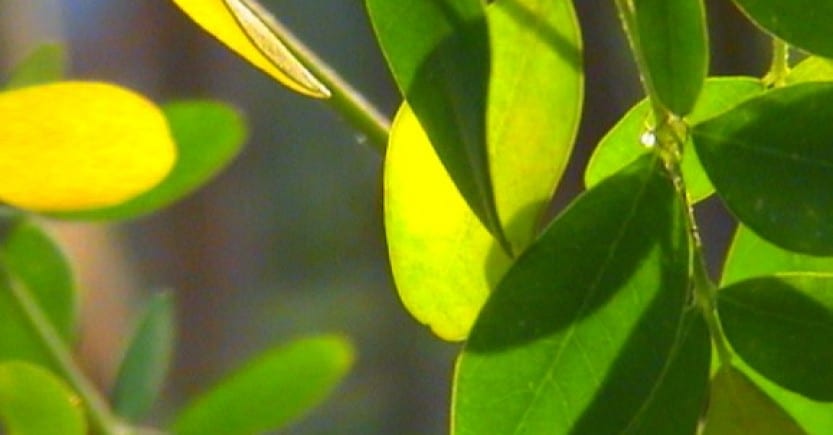Help for Teen with Tourettes and Mood Disorder
Dr. Robbins, an environmental physician and allergist, replied to a question received by ACN Latitudes.
Question
We live in Ohio and have a 16-year-old son with Tourette syndrome (TS). Jerry was diagnosed in 4th grade. The tics came out of nowhere and were very severe, both verbal and facial.They have waxed and waned over the years and sometimes are almost nonexistent. Recently they increased with lots of facial tics, especially mouth and eye. This is the worst he’s been in years.
He has a lot of co-existing symptoms along with the TS: anger, rages, meltdowns, decreased appetite, trouble going to sleep, and trouble waking up. He has some obsessive compulsive issues also. In the past three years these issues have increased dramatically.
Jerry has experimented with several drugs (illegal and over the counter) and has found that marijuana controls his tics well. He also smokes cigarettes which he claims calm him.
He has never been on any prescribed medication for his tics, however we have tried taurine, magnesium, and essential fatty acids among other supplements, but compliance is a problem. A couple of years ago we went the mental health route, and he was prescribed a variety of antipsychotic meds to stabilize his mood. It was a horrible 8-month roller coaster ride with each psychiatrist changing meds as new negative side effects arose. We chose to take him off every Rx and increase supplements. We have also gone the juvenile court route including him being on probation, house arrest, detention center, and court mandated anger management and drug/alcohol rehab classes.
Along with the recent increase in tics his increased irritability, inability to focus, and rages, etc. have greatly affected his ability to function in the classroom. Jerry wants to move to a state where he can get a medical marijuana license. He also wants to find a doctor who would prescribe marinol for him, a prescription cannabinoid.
1) Do you have any suggestions or recommendations for getting him the help he needs without putting him on harmful prescriptions?
2) Are you aware of any natural (legal) alternative medications or supplements that would have the same calming effect as marijuana?
Dr. Robbins Responds
Your son has found that an illegal drug (marijuana) helps calm his tics. He is not alone in this finding. Marijuana affects the dopamine neurotransmitter system. Enough people with Tourettes have reported this that research has been done on marijuana and its commercial form, Marinol, for tic control. See this article with research cited from an organization that promotes the use of medical marijuana.
Your son also finds that smoking calms his tics. Some people find that the chemicals in cigarettes aggravate tics, but studies have also confirmed that nicotine patches are helpful in some children with tic disorders.
I note that psychiatric medications tried with your son have failed.
The ethical and medical question of the day is whether we should be prescribing addictive street substances (nicotine and marijuana) for children and teenagers. I say this because the risk of drug addiction and multiple other secondary health problems is a serious consideration. At the same time, the dangers of conventional medications for tic control are well known. We need to ask ourselves if we should we placing our children and teenagers on a drug-related path. This medical drug approach (both legal and illegal) appears to be the medical paradigm of the day.
It is encouraging that over the years the tics have subsided significantly, and this should give you hope. The goal is to restore Jerry’s health to what it was during those periods.
My advice is to search for and find a healthy preventive/holistic path to for him to follow. This includes educational behavioral therapy and lifestyle intervention, eventually helping him to find a way out of addiction and stopping smoking.
It’s important to focus on eliminating environmental causative factors, and to implement exercise along with environmental and nutritional approaches. Recommending and implementing a daily healthy “positive addiction” to exercise, possibly with the help of a knowledgeable trainer might be a place to start. Positive exercise addictions can replace negative addictions and improve brain neurotransmitters.
Nutrient evaluations may be quite helpful and the use of high dose niacinamide as well as other B vitamins may significantly impact his nervous system and help stabilize moods and tics.
Evaluation and treatment for both food and chemical allergy will help decrease hypoglycemic symptoms which affect both mind and body. Allergy evaluation and treatment should help, once a healthy lifestyle has been developed. It could also be helpful to think back and explore what may have been related to the sudden onset of tics in the 4th grade, including infection, emotional distress, or serious exposure to a substance that can aggravate the nervous system, such as mold.
I suggest you consider developing health-related goals and a comprehensive plan to correct the underlying causes of this medical problem under the care of a knowledgeable physician, and to understand a key point in medical intervention….that “it is not where you are that counts, but the direction that you are heading in.” An important and helpful book to read by the psychiatrist Ari Kiev, MD, is A Strategy for Daily Living.
I hope this is helpful.










“addictive street substances (nicotine and marijuana)”
Yes, Nicotine is addictive – but you should know (supposedly being a doctor) that Marijuana is not.
I have tourette syndrome, as with everybody my tics wax and wane, but at their worse they are impossible to cope with.
I exercise as much as possible, eat a fairly balanced diet and have been on lots of different meds in the past – the only thing that has helped to control my tics is marijuana.
Side effects? Hardly any. In comparison to the medications which rarely created any reduction in my tics and also caused a lot of physical, social and mental issues for myself – and it turns out quite a few people with Tourette syndrome.
In short, I don’t think you should be so quick to write something off there when you clearly have not got true first hand experience dealing with the disorder (ie you don’t suffer yourself).
To A S on your Dec 9 comment–from Sheila Rogers:
Your points are well taken. Many drugs for TS and other conditions can have much worse side-effects than marijuana. I see Dr Robbins included a link to NORML, an advocacy group that promotes the use of marijuana for medicinal purposes. It seemed he was replying from both a holistic and legal standpoint. In any event, I’m so glad you’ve found something that helps you.
Thanks for your support and informative post.